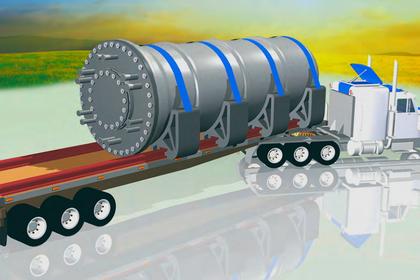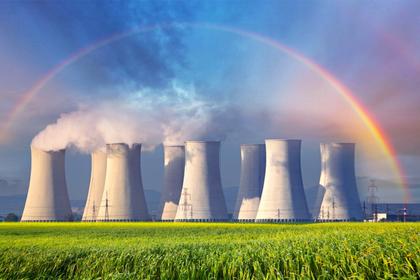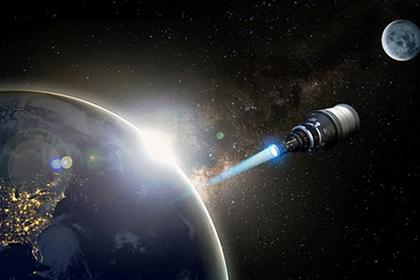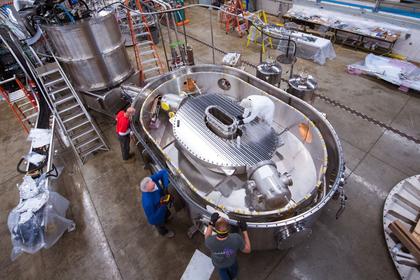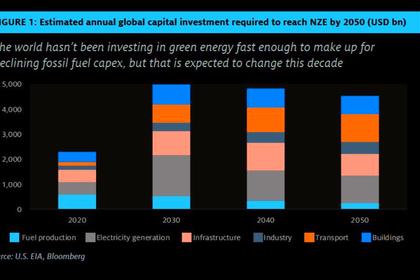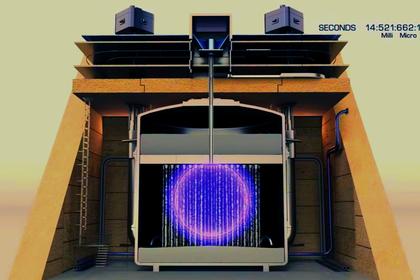
ARTIFICIAL INTELLIGENCE FOR ACCELERATING FUSION
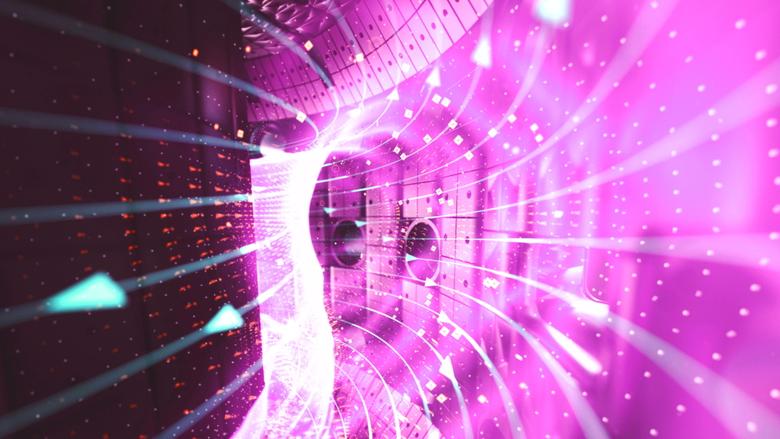
IAEA - JUN 9 2022 - The IAEA is calling on interested partners to join a new coordinated research project (CRP) on accelerating fusion research and development (R&D) with artificial intelligence (AI), through the creation of a platform and cross-community network for innovation and partnership.
UNESCO’s recent Recommendation on the Ethics of AI defines AI systems as information-processing technologies that integrate models and algorithms that produce a capacity to learn and to perform cognitive tasks leading to outcomes such as prediction and decision-making in material and virtual environments. AI systems are designed to operate with varying degrees of autonomy by means of knowledge modelling and representation and by exploiting data and calculating correlations. AI systems may include several methods, such as:
- machine learning, including deep learning and reinforcement learning;
- machine reasoning, including planning, scheduling, knowledge representation and reasoning, search, and optimization.
These systems are recognized to have the potential to drive progress across all 17 Sustainable Development Goals (SDGs), having demonstrated huge improvements in the scale and complexity of problems they can solve, especially in cases where large amounts of training episodes are available.
In the realm of fusion science discovery, improved AI-based modelling of plasma dynamics from experimental data and plasma simulations offers the possibility of enabling predictive modelling for real-time monitoring, providing fast results for exploration of designs or providing uncertainty quantification, as well as enhancing analysis of instrumentation data. The large scale application of such methods has the potential for advancing both magnetic and inertial fusion research and development.
However, current development of AI applications for fusion often encounters challenges common to other communities. One example is that data ecosystems differ across various institutes, making difficult to validate data-driven models involving complex multi-scale, multi-physics systems such as those required in fusion research. Another example is the hesitancy of sharing experimental or simulation data due to institutional policies, security and intellectual property issues, or the fear of being scooped. Additionally, the use of AI requires teamwork and diverse skills in order to design integrated solutions to challenges of growing complexity and interdisciplinarity, at the interface of plasma physics, material science and nuclear engineering.
In this CRP, a number of AI-centric enabling activities are foreseen, such as the development of data repositories adhering to Open Science (OS) best practices and principles known as FAIR (Findable, Accessible, Interoperable, Reusable), the creation of cross-disciplinary initiatives for supporting capacity development, as well as for actively engaging the community.
CRP Overall Objective:
This proposed new CRP on "Artificial Intelligence for Accelerating Fusion Research and Development" (2022–2027) has the overall objective of accelerating fusion R&D with AI, through the creation of a platform and cross-community network for innovation and partnership. The CRP will feature four Work Packages.
Work Packages and Specific Research Objectives:
Work Package 1. Real-time Magnetic Fusion Energy (MFE) System Behaviour Prediction, Identification & Optimization Using AI Methods: To accelerate fusion R&D by establishing a multi-machine database of experimental and simulation MFE data (adhering to FAIR/Open Science principles) for AI-driven applications, and through increased access to knowledge and information of AI methods for MFE. Find out more here.
Work Package 2. Inertial Fusion Energy Physics (IFE) Understanding through Simulation, Theory and Experiment Using AI Methods: To accelerate fusion R&D by establishing a database of experimental and simulation IFE data (adhering to FAIR/Open Science principles) for AI-driven applications, and through increased access to knowledge and information of AI methods for IFE. Find out more here.
Work Package 3. Feasibility of MFE and IFE Image Database: To determine the feasibility of an image database from MFE and IFE data (adhering to FAIR/Open Science principles) for AI-driven applications with potential to accelerate fusion R&D. Find out more here.
Work Package 4. Community Engagement and Workforce Development: To accelerate community engagement and capacity building, as well as create and provide with access to knowledge and information in the area of AI methods applied to fusion R&D. Find out more here.
How to join this CRP:
Proposals for a Research Contract or Agreement must be submitted by 31 July 2022, using the appropriate template on AI for Fusion platform, where comprehensive information about this CRP can found. The IAEA encourages institutes to involve, to the extent possible, female researchers and young researchers in their proposals.
-----
Earlier:
